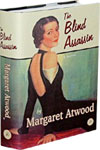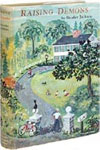Collection of Forty-Eight Loose Original Gelatin Silver Photographs, Showing the Filming of the Oscar-Winning Movie "Eskimo" in Northwestern Alaska in 1932-1933, Featuring Rare Behind-the-Scenes Photos of the Film Cast & Crew (Ray Mala, Lotus Long, Peter Freuchen, W. S. Van Dyke), Native Actors in Parkas and Mukluks Haunting Polar Bear, Walrus, and Moose, Extras Posing in Igloos and Processing Captured Animals; also, with Early Photos of Alaska's Arctic and the 1930s Movie Equipment. 1932-1933.
ALASKA ? FILMING ?ESKIMO?
From
Globus Rare Books & Archives, San Francisco, CA, U.S.A.
Seller rating 5 out of 5 stars
![]()
AbeBooks Seller since 08 February 2023
About this Item
Description:
Forty-eight loose gelatin silver photographs: thirty-five larger ones from ca. 8,2x10,6 cm (3 ¼ x 4 in) to ca. 6,9x11,4 cm (2 ¾ x 4 ½ in), six smaller ones ca. 6,3x8,8 cm (2 ½ x 3 ½ in), the rest of the photos ca. 6,9x10,9 cm (2 ½ x 4 ¼ in) or smaller. No captions. Several photos with mild silvering, but overall a very good collection of rare strong photos. Historically interesting extensive collection of original photos, documenting the making of the first-ever big-budget motion picture filmed entirely in Alaska. "Eskimo" is an American Pre-Code drama movie and the earliest feature shot in a Native American language (Inupiat). The film was adapted from the books by the Danish explorer Peter Freuchen and directed by W. S. Van Dyke in 1933. "Eskimo" explored the cultural divide between Alaska's indigenous population and the white settlers and mostly casted native actors, including Hollywood star Ray Mala and Lotus Long. The filming took place in Teller, Nome, between 1932 and 1933, with various scenes also shot at Cape Lisburne, Point Hope, Cape Serdtse-Kamen, and Herald Island. "Eskimo" received critical acclaim upon its release in November 1933 and was awarded the first-ever Oscar for Best Film Editing. The collection includes forty-eight vibrant photographs taken by an amateur photographer (likely a crew member) on the set of "Eskimo" in northwestern Alaska in 1932-1933. About nine candid individual and group photos show Ray Mala, Lotus Long, Peter Freuchen, W. S. Van Dyke (director), and other cast & crew members posing by igloos, sleighs, etc. Ten lively vernacular scenes of polar bear, walrus, and moose hunting vividly portray native actors in parkas and mukluks sailing umiaks on the Chukchi Sea. At least seven excellent photographs, likely taken in Teller, offer behind-the-scenes glimpses of Mala and Long in Inuit attire, alongside the film crew building snow houses and managing movie equipment. Especially interesting are five well-executed close-up photos of native extras processing prey with an uluit, posing in an igloo (with a clearly visible interior), cradling Eskimo babies, standing by an umiak, etc. There are also two graphic photographs of a plane crash, potentially involving one of the production crew's aircraft. The rest of the photos show summer Eskimo tent houses (with walrus meat drying on the rack), native men mushing dog sleds (both in winter and summer), a walrus being hoisted by a crane, Moose Day celebrations, the Church of the Holy Ascension in Unalaska, and a transport ship, possibly Victoria , which took the cast & crew from Seattle to Nome. Overall, historically interesting collection of forty-eight gelatin silver photographs documenting the making of one of the earliest Oscar-winning films in Alaska. Seller Inventory # PC52
Bibliographic Details
Title: Collection of Forty-Eight Loose Original ...
Publication Date: 1932
Binding: None
Condition: None
AbeBooks offers millions of new, used, rare and out-of-print books, as well as cheap textbooks from thousands of booksellers around the world. Shopping on AbeBooks is easy, safe and 100% secure - search for your book, purchase a copy via our secure checkout and the bookseller ships it straight to you.
Search thousands of booksellers selling millions of new & used books
New & Used Books
New and used copies of new releases, best sellers and award winners. Save money with our huge selection.
Rare & Out of Print Books
From scarce first editions to sought-after signatures, find an array of rare, valuable and highly collectible books.



